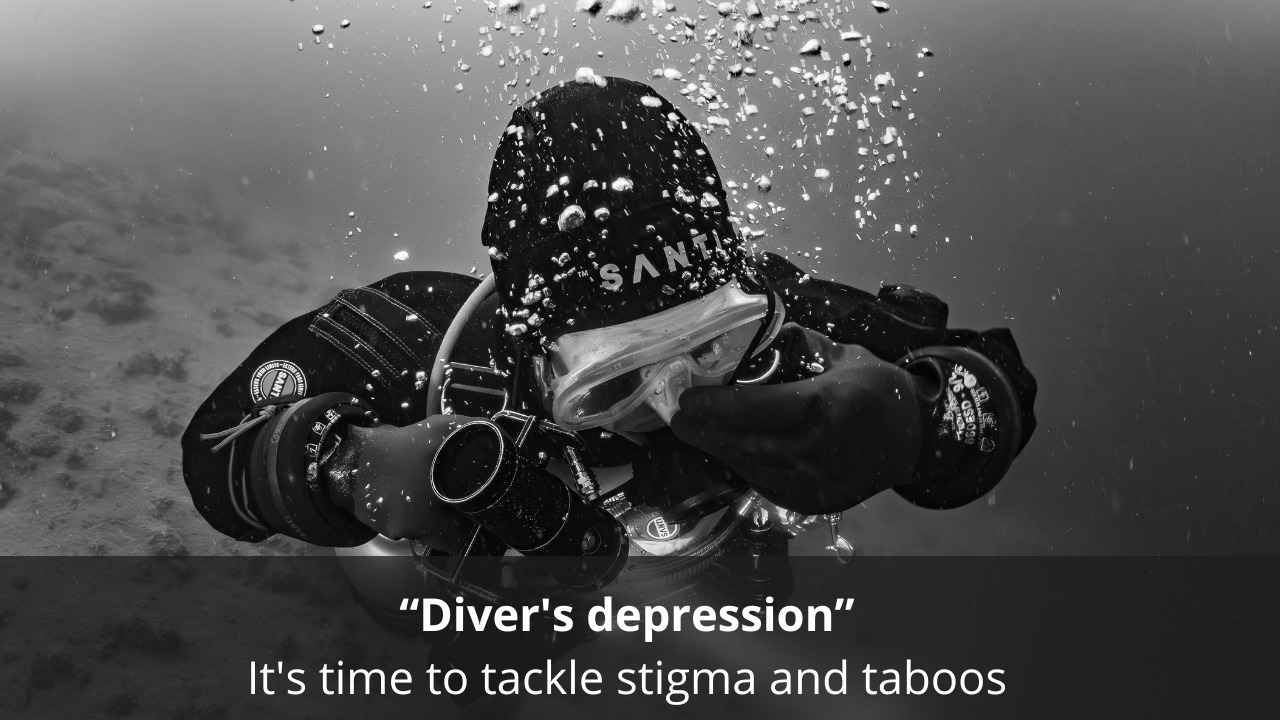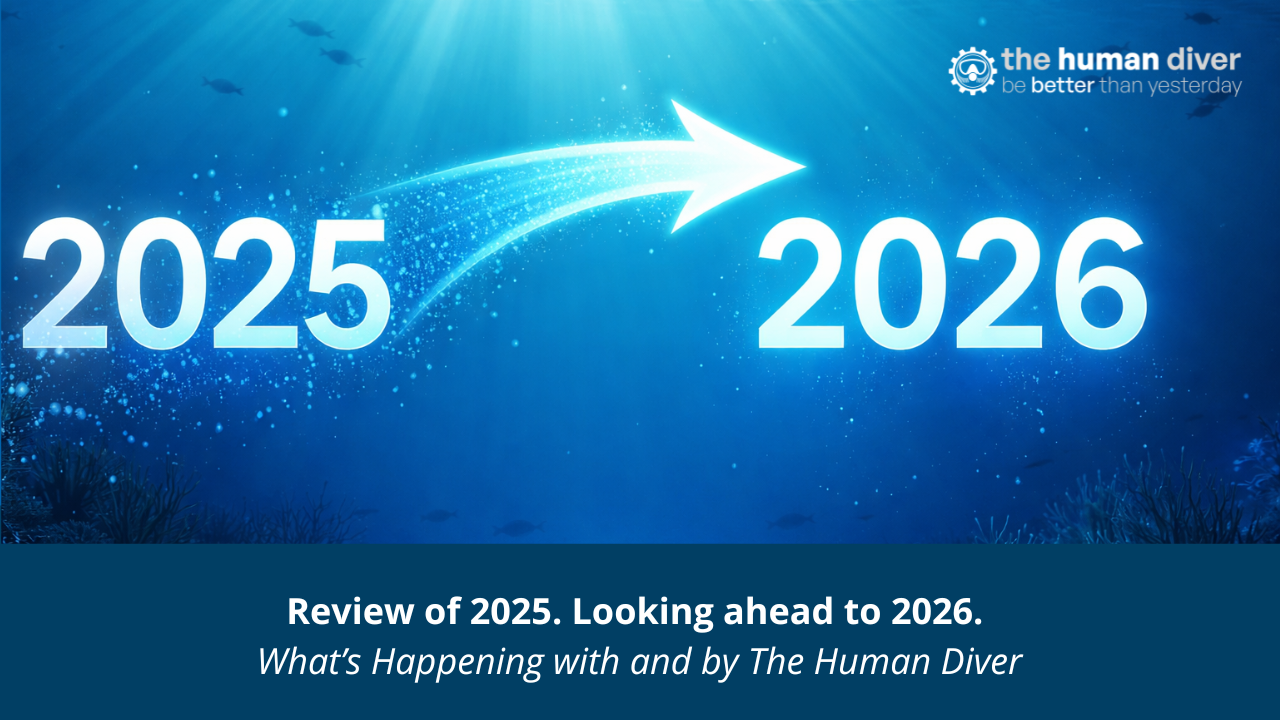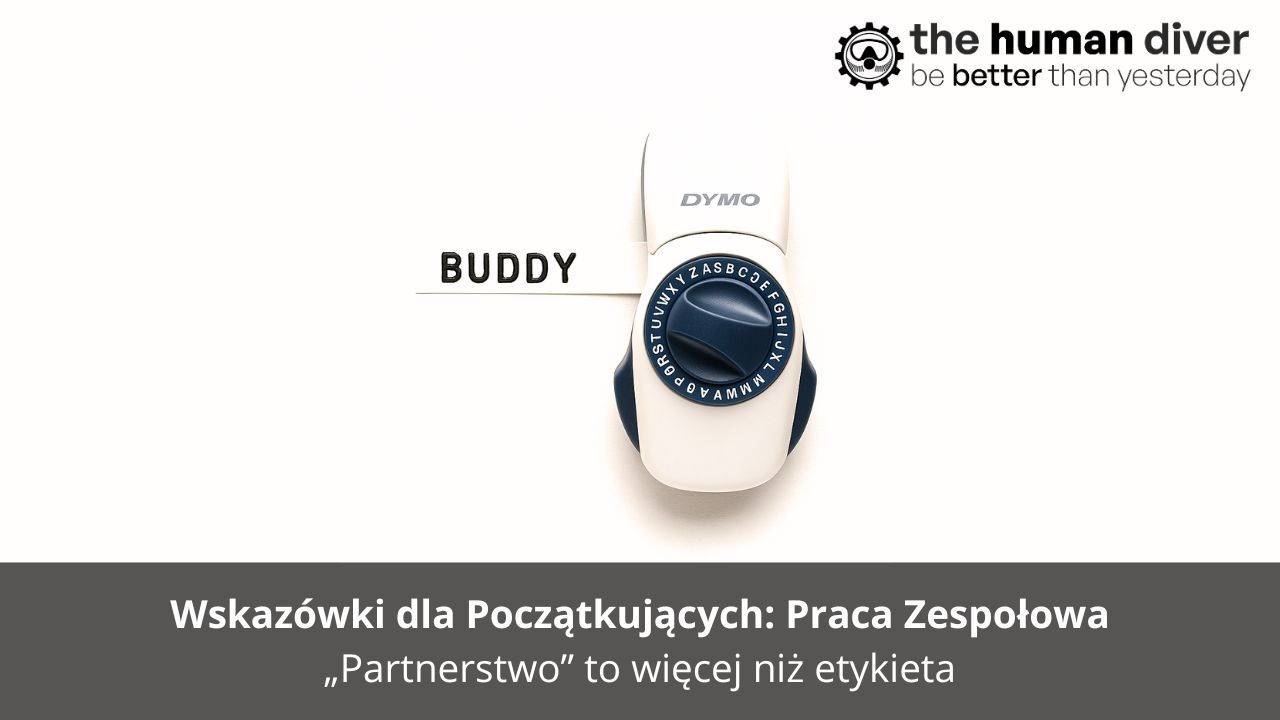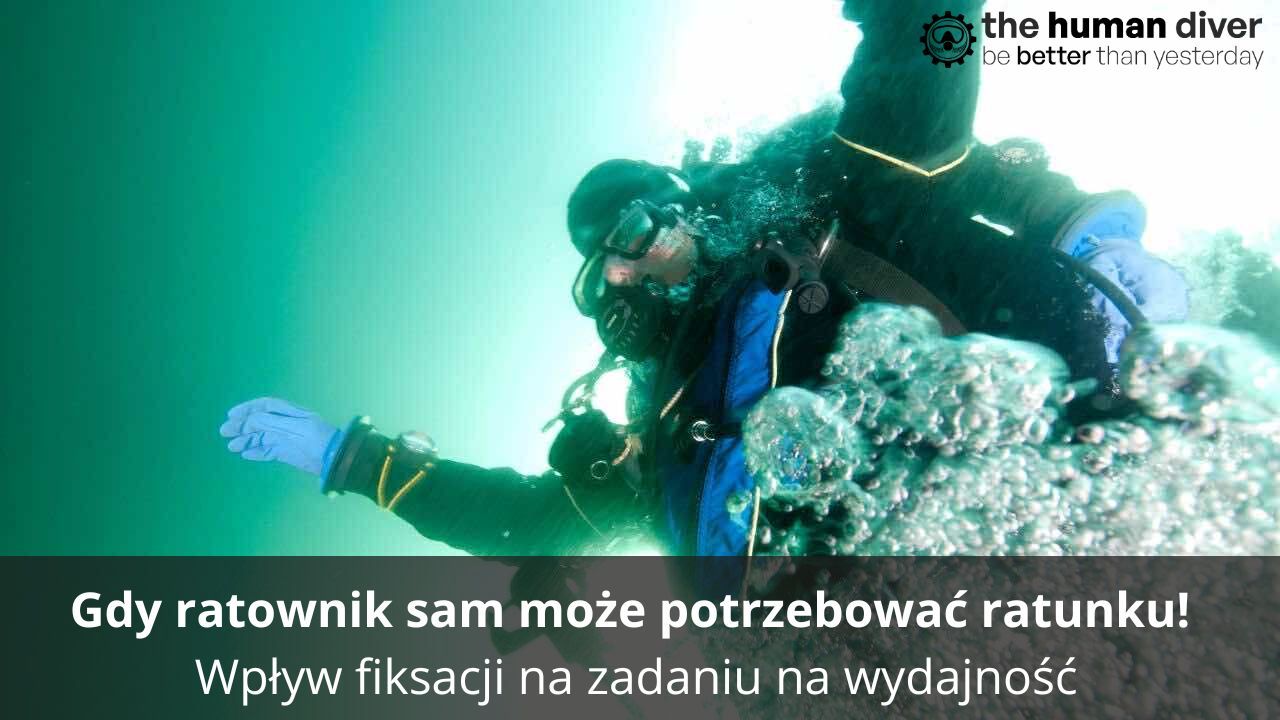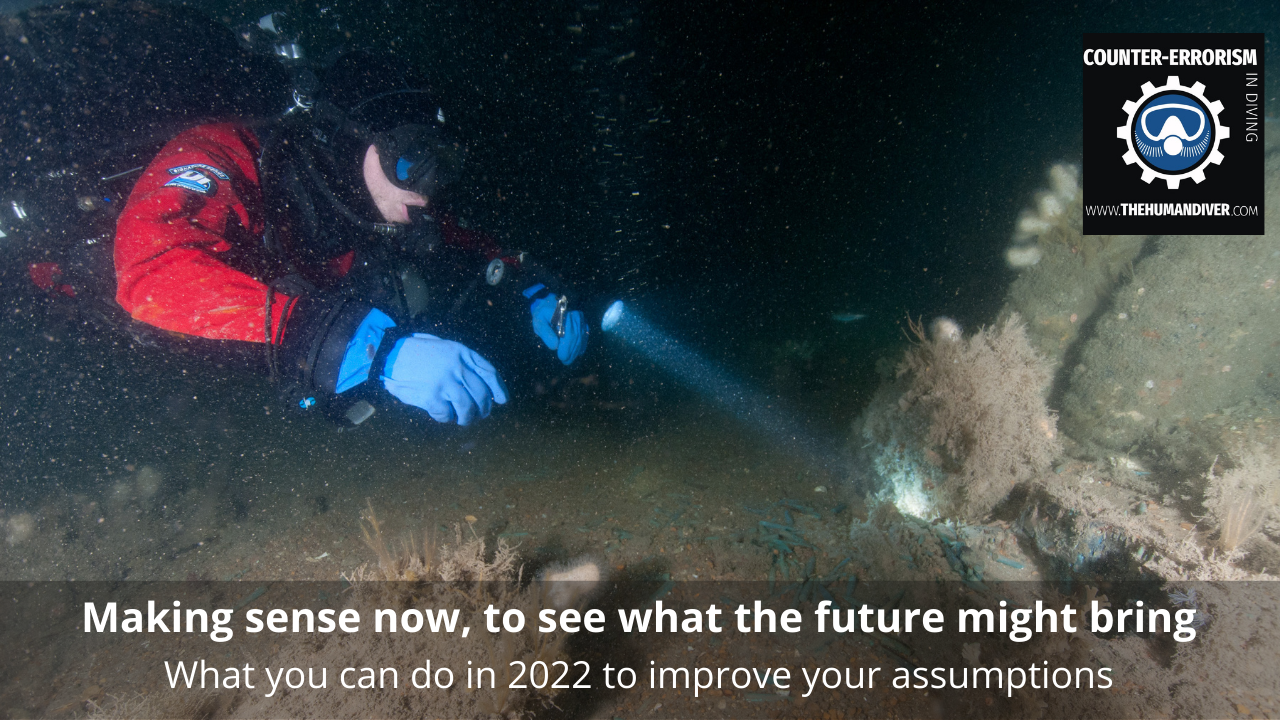
Making sense now to see what the future might bring
Jan 03, 2022This statement is the basic premise behind effective situation awareness. We perceive data, we make sense of it in the here and the now, and then we make an educated guess as to what the future might look like. It is an educated guess because we can never be 100% certain what the future will look like as there are just too many variables and we can’t know everything.
Our guesses are based on our previous experiences, our training, listening to or reading stories of others’ diving exploits and their training courses. All of these experiences and knowledge build up a mental model or approximation of what the future might hold for us in this particular situation. For example, entering a wreck on OC after no one else has been there for a while will likely lead to percolation of rust/silt falling from the ceiling, thereby reducing visibility, even if finning techniques are well refined. This ability to project into the future is a very powerful skill because it allows us to manage risk and uncertainty, it allows us to save mental energy and it allows us to save time.
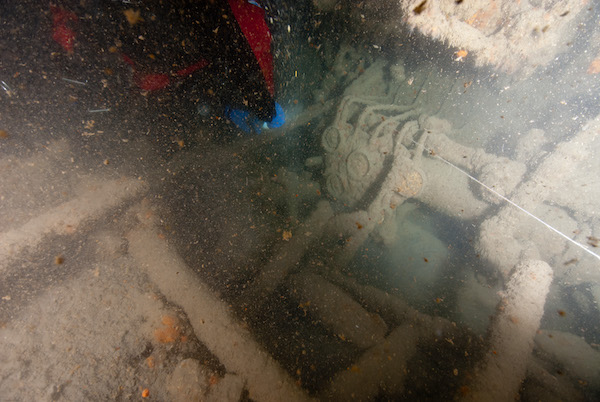
Inside the engine room of an LST during a survey project (Gareth Lock)
Assumptions are not facts. A large proportion of diving is about risk management which means that assumptions are being made all the time. As we are in a non-life sustaining environment, we want to reduce the likelihood of the hazards we face (drowning, entanglement, separation, hypoxia, hyperoxia, hypercapnia…) from occurring and that means understanding the assumptions we are making and validating them where possible.
The problem we have with risk management is the way we deal with assumptions and incomplete information. In a recent webinar for DAN Southern Africa (https://www.youtube.com/watch?v=TSeKQidAZZA&t=547s), I covered the subtle but important difference between risk management and uncertainty management. We tend to manage risks through logic and numerical scores/values, but we manage uncertainty through heuristics (mental shortcuts), biases and emotions. If we can improve the certainty that something will happen, then we are likely to be safer. The reason is that surprises lead to accidents, and if there are no surprises, there’d be no accidents!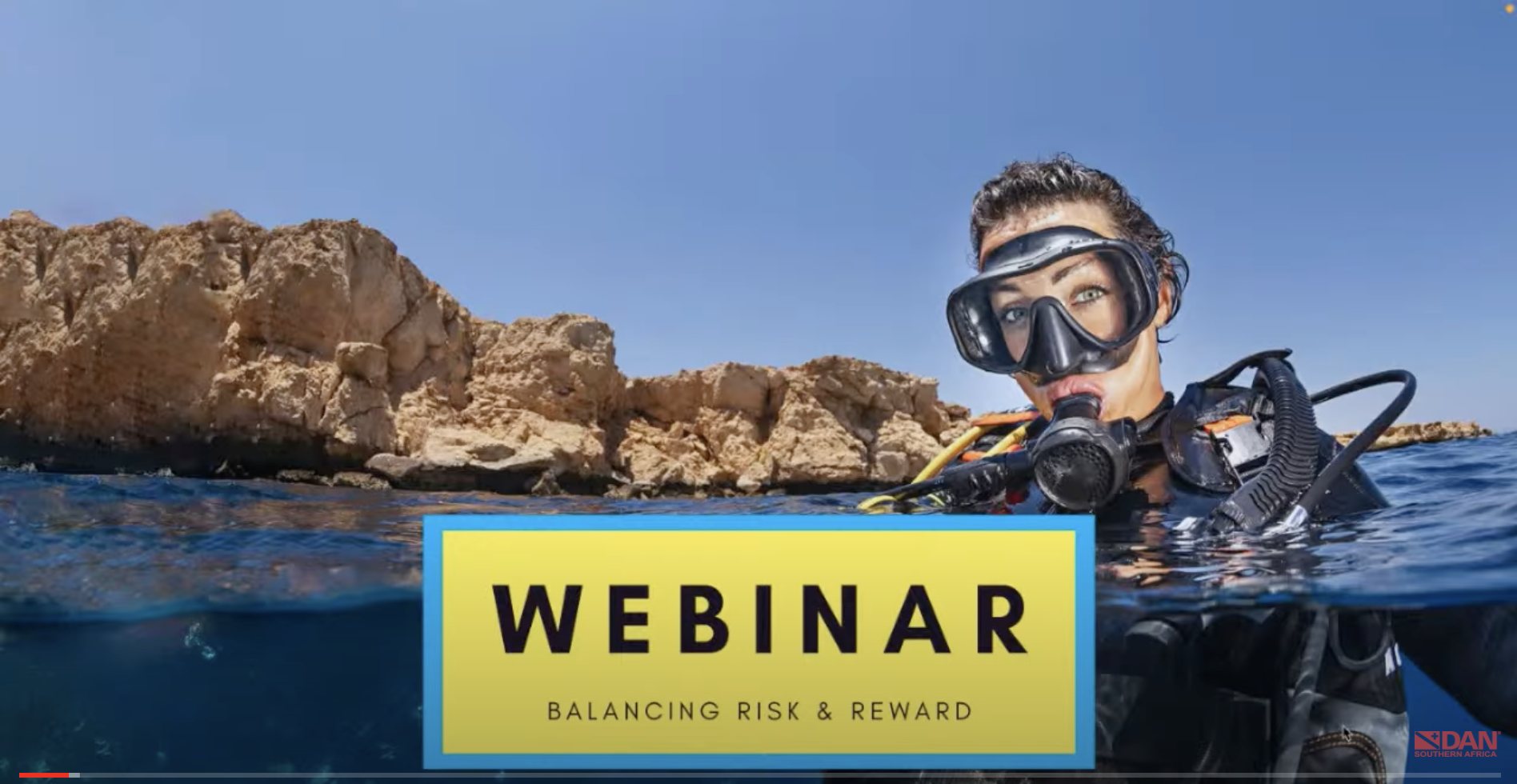
The goal of The Human Diver and the programmes we deliver is to increase the certainty of what is going to happen while getting ready for and during a dive. This is done by increasing the accuracy of the mental model we have both as individual divers and as a team of divers. Note that the team isn’t just outside of training, it is inside too.
Ultimately, we would like to make effective decisions and execute on them. We do this by building situation awareness via communication, teamwork and leadership, and feedback from what we are doing. We also need to recognise the impact of performance shaping factors like stress and fatigue and other error inducing factors to reduce our performance. These are traditionally known as non-technical skills which are a sub-set of Human Factors. Finally, we need to be diving within a social/cultural environment that allows anyone to question or challenge others (psychological safety) and learn from our mistakes in a constructive manner (Just Culture).
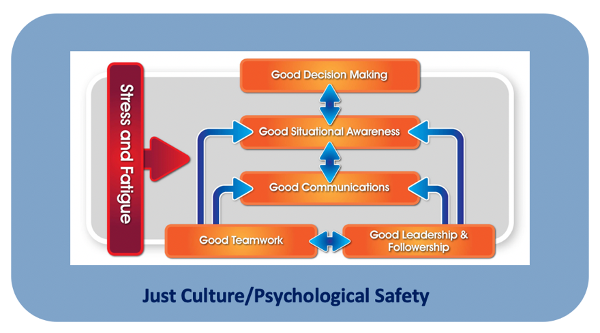
This year, 2022, The Human Diver and its instructors are providing multiple opportunities for divers around the globe to improve their non-technical skills, to create and maintain psychological safety and develop a Just Culture.
We are increasing the number of blogs we write, we have new instructors delivering programmes across the globe in multiple languages and we will be fielding a new 2-day ‘Learning from Unintended Outcomes’ course.
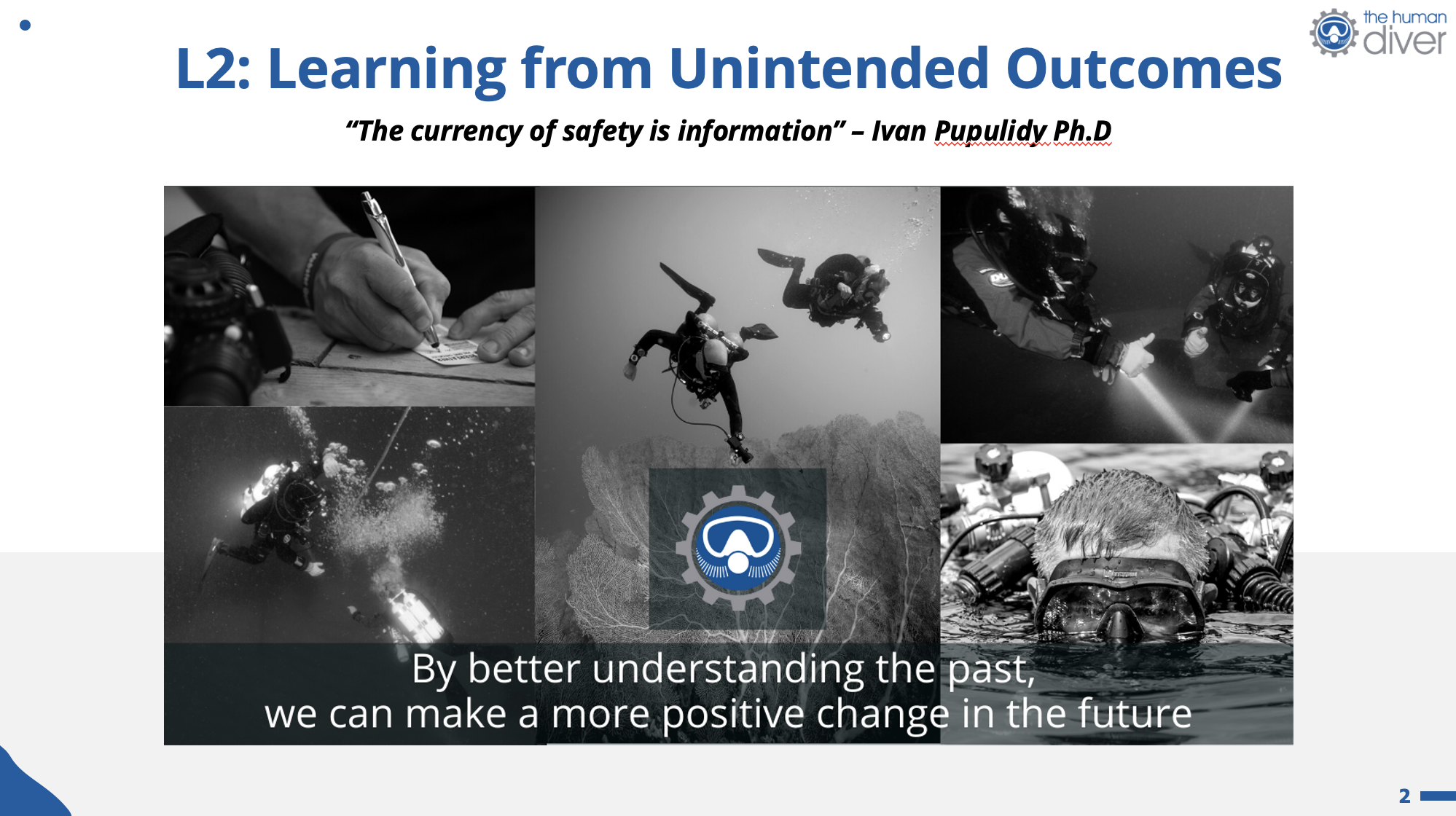
This is another global first for the diving industry, taking a learning approach to adverse events so we can learn rather than blame. Ultimately, we would like to understand how it made sense for someone to do what they did so that we can improve the chances that if we are faced with the same or similar situation, we would do the ‘right’ thing. Incident reports and investigations rarely capture the multiple contributory factors relating to human factors and non-technical skills and this course will address this shortfall.
We wish you a successful and exciting (for the right reasons!) 2022 and that you will continue to join us on a learning journey that never ends. If you have a specific problem, case study or event you’d like us to look at from a human factors perspective, please get in touch.
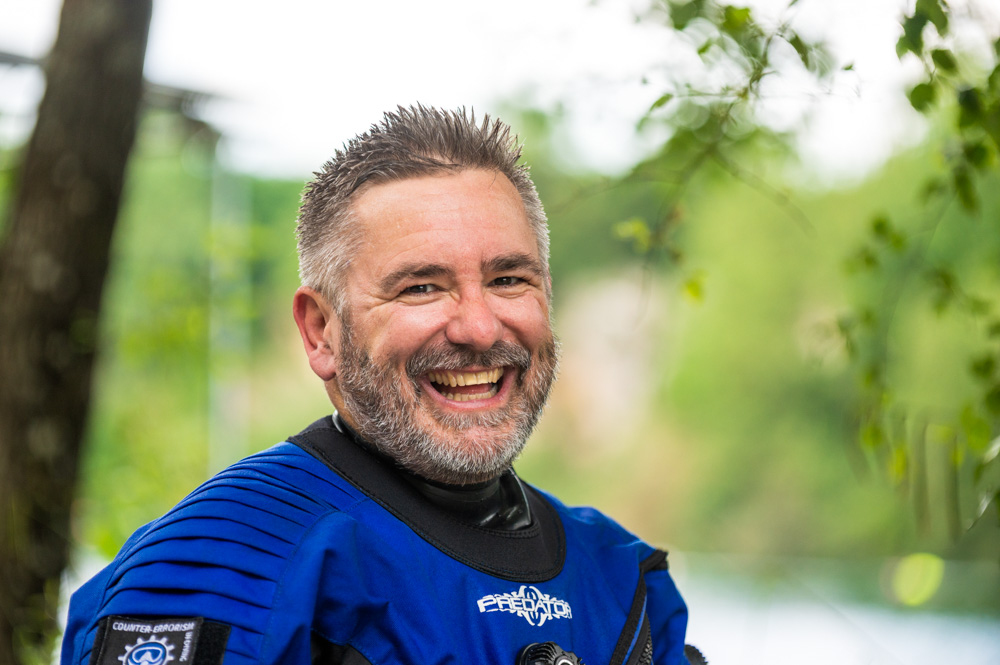
Gareth Lock is the owner of The Human Diver, a training and coaching company focused on educating and developing divers, instructors and related teams to be high-performing. If you'd like to deepen your diving experience, consider taking the online introduction course which will change your attitude towards diving because safety is your perception, visit the website.
Want to learn more about this article or have questions? Contact us.

